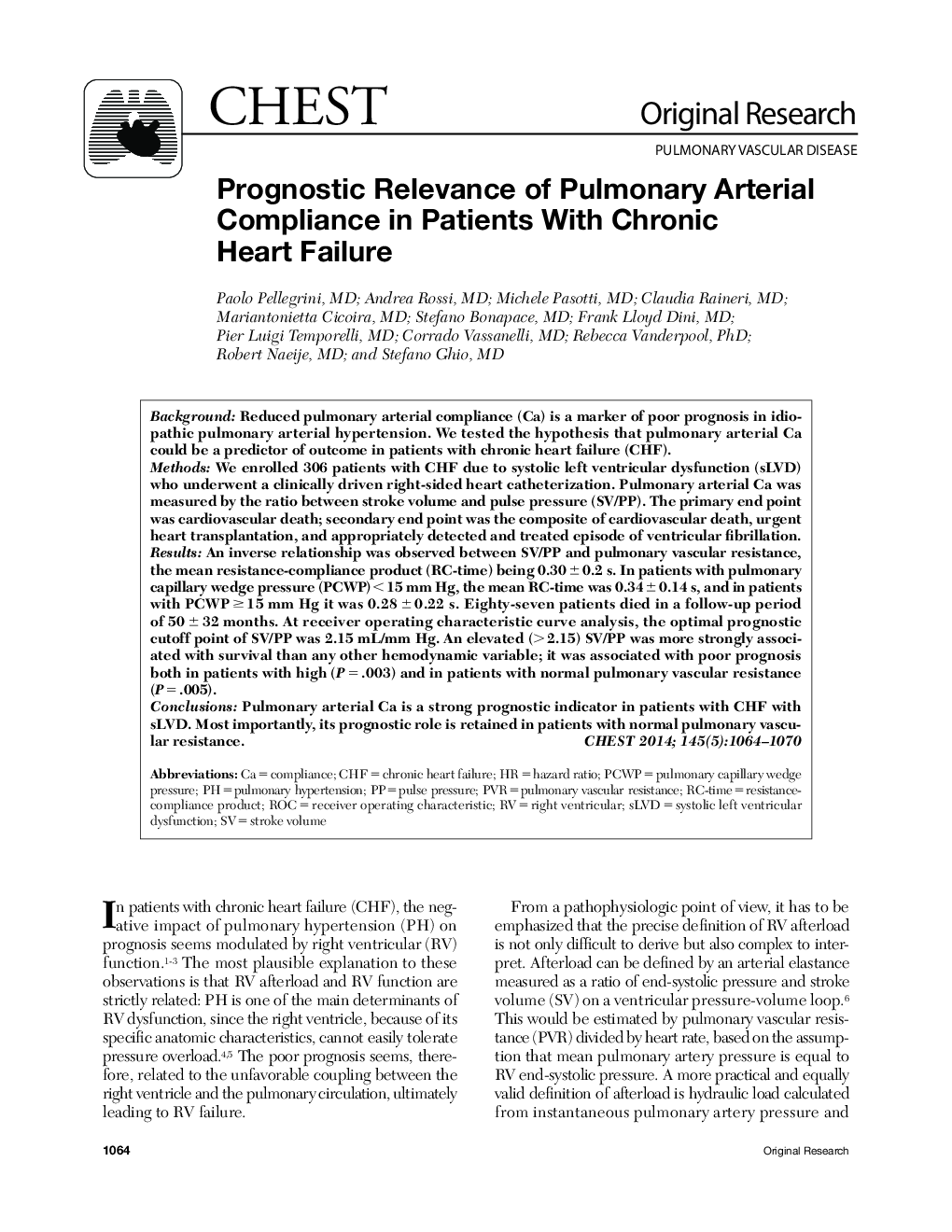| Article ID | Journal | Published Year | Pages | File Type |
|---|---|---|---|---|
| 2900355 | Chest | 2014 | 7 Pages |
BackgroundReduced pulmonary arterial compliance (Ca) is a marker of poor prognosis in idiopathic pulmonary arterial hypertension. We tested the hypothesis that pulmonary arterial Ca could be a predictor of outcome in patients with chronic heart failure (CHF).MethodsWe enrolled 306 patients with CHF due to systolic left ventricular dysfunction (sLVD) who underwent a clinically driven right-sided heart catheterization. Pulmonary arterial Ca was measured by the ratio between stroke volume and pulse pressure (SV/PP). The primary end point was cardiovascular death; secondary end point was the composite of cardiovascular death, urgent heart transplantation, and appropriately detected and treated episode of ventricular fibrillation.ResultsAn inverse relationship was observed between SV/PP and pulmonary vascular resistance, the mean resistance-compliance product (RC-time) being 0.30 ± 0.2 s. In patients with pulmonary capillary wedge pressure (PCWP) < 15 mm Hg, the mean RC-time was 0.34 ± 0.14 s, and in patients with PCWP ≥ 15 mm Hg it was 0.28 ± 0.22 s. Eighty-seven patients died in a follow-up period of 50 ± 32 months. At receiver operating characteristic curve analysis, the optimal prognostic cutoff point of SV/PP was 2.15 mL/mm Hg. An elevated (> 2.15) SV/PP was more strongly associated with survival than any other hemodynamic variable; it was associated with poor prognosis both in patients with high (P = .003) and in patients with normal pulmonary vascular resistance (P = .005).ConclusionsPulmonary arterial Ca is a strong prognostic indicator in patients with CHF with sLVD. Most importantly, its prognostic role is retained in patients with normal pulmonary vascular resistance.
